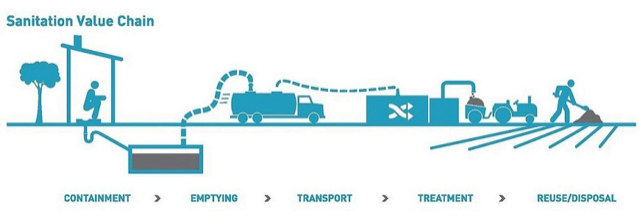UPSC Articles
Faecal Sludge And Septage Management (FSSM)
Part of: GS Prelims and GS- I – Social Issues
In news
- NITI Aayog released a book on faecal sludge and septage management (FSSM) in urban areas.

Key takeaways
- Jointly developed with National Faecal Sludge and Septage Management (NFSSM) Alliance, the book presents 27 case studies across 10 states and various service and business models adopted by Indian cities while implementing FSSM initiatives.
- About 60% of urban households rely on onsite sanitation systems, which require dedicated planning for management of waste collected in these systems’ containment structures.
- Accordingly, FSSM planning prioritizes human excreta management, a waste stream with a high potential for spreading diseases.
Do you know?
- Considering the importance of FSSM solutions, the Ministry of Housing and Urban Affairs came up with the national policy on FSSM in 2017.
- More than 24 states have adopted it and 12 of them have come up with their own policies.
- Universal access to toilets was achieved in urban India with the construction of 66 lakh household toilets and more than 6 lakh community and public toilets.
- After achieving the target of ‘Open-Defecation-Free’ (ODF), India has now moved towards becoming ODF+ and ODF++.
- These targets go beyond the concept of access to sanitation and aim for safely managed sanitation systems, with adequate treatment and safe disposal of toilet waste.














